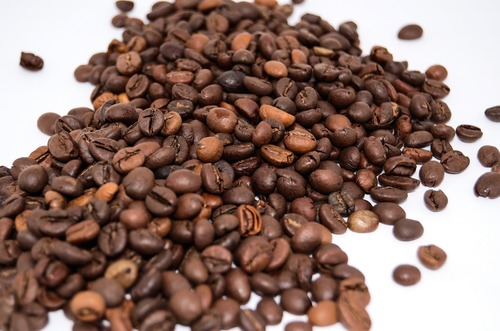Is Caffeine Bad For You?
Also Known As: C8H10N4O2
Short answer
Caffeine can be bad if you over consume it. Try to limit yourself to 300mg per day - you will be just fine.
A fairly even ratio of beneficial and harmful qualities. Moderation is important. Very general topics that can lean towards both sides of the spectrum will be placed here as well. Rice, for example, can be good or bad depending on the type.
View Full Grading System
Category 'A'
Very healthy and numerous health benefits. Side effects are rare. Things rated an 'A+' are typically necessary for survival (for example, water).
Very healthy and numerous health benefits. A few harmful qualities may be associated, but only under certain circumstances such as an allergic reaction.
Very healthy and numerous health benefits. Harmful qualities may be associated, but aren't usually serious.
It is important to note that even the best things in life can become bad in immoderate amounts. So, although something may be rated an 'A+', overconsumption/overdoing can bring unwanted effects.
Category 'B'
Very beneficial to your health. Things rated a 'B+' may have a few harmful qualities to pay attention to.
Overall beneficial to your health. Things rated a 'B' may have some harmful qualities to pay attention to.
More beneficial to your health than not. However, harmful qualities are most likely associated and shouldn't be overlooked.
The main difference between category 'A' and category 'B' is the harmful qualities typically present in 'B' items. Serious side effects are usually uncommon, but are still possible and should be taken note of.
Category 'C'
Both beneficial and harmful qualities associated. Things rated a 'C+' are typically a bit more on the beneficial side. Still, moderation is important.
A fairly even ratio of beneficial and harmful qualities. Moderation is important. Very general topics that can lean towards both sides of the spectrum will be placed here as well. Rice, for example, can be good or bad depending on the type.
More harmful than beneficial. Side effects are common, especially when consumed/done excessively. Moderation is very important.
Category 'C' usually denotes to both good and bad qualities. When it comes to this category, it is important to keep this word in mind: moderation.
Category 'D'
Harmful to your health. Although benefits may be associated, the bad most likely outweighs the good. Moderation is very important.
Harmful to your health. A few benefits may be associated, but the bad outweighs the good. Moderation is extremely important.
Harmful to your health. Very few, if any, benefits are present. Things in this category should be avoided as much as possible.
Category 'D' is typically for things that are more harmful than beneficial. While consuming/doing something unhealthy once in a blue moon shouldn't hurt, we definitely recommend eliminating 'D' items as a regular part of your routine/diet.
Category 'F'
Category 'F' is for things that fail to bring anything beneficial to the table, and are very harmful to your health. We recommend completely avoiding anything in this category. Long-term side effects of 'F' items are usually very serious.
Category 'N'
'N' stands for neutral. Things placed into this category are generally (a) neither good nor bad for you, or (b) lack the necessary evidence to reach any conclusions.
Long answer
Caffeine is the most generally ingested psychoactive substance on the planet. By blocking adenosine, caffeine really expands movement in the cerebrum and the arrival of different neurotransmitters like norepinephrine and dopamine. This lessens tiredness and makes us feel ready to go. There are various studies demonstrating that caffeine can support mind capacity… including enhanced inclination, response time, cautiousness and general psychological capacity. Caffeine can likewise support the digestion system (calories smoldered) by 3-11% and even build exercise execution by 11-12%. Nonetheless, some of these impacts are liable to be short-term. In the event that you drink coffee consistently, you will build a tolerance, as well as become more prone to the side effects.
Those who don't regularly take in caffeine may have a raise circulatory strain after consuming. Caffeine is also connected to gout assaults. Peoples who orgy on caffeinated refreshments build their danger for gout erupt. More than 4 cups of coffee a day (400+ mg of caffeine) is even linked to early death.
Because caffeine inhibits sleep, try to cut your caffeine intake 4-6 hours before bed. Individuals who devour stimulated refreshments frequently report a steamed stomach or heartburn, however, this is mostly seen on an empty stomach.
Lastly, if your body craves caffeine and you don't give it any, you may experience withdrawal symptoms such as migraines, irritability, sleepiness, muscle pains, and constipation.
Possible short-term side effects
- sleep deprivation
-
heartburn
-
anxiety
-
shakiness
Possible long-term side effects
- increased blood pressure
-
circulatory strain
-
gout erupt
Possible withdrawal symptoms
- headache
-
irritability
-
sleepiness
-
lethargy
-
constipation
-
depression
-
lack of concentration
-
muscle pains/stiffness
-
flu-like symptoms
Benefits
- enhanced inclination
-
quicker response time
-
enhanced cautiousness
-
enhanced psychological capacity
-
supports digestion
-
increased exercise execution
Healthier alternatives
- ginseng
-
ice cold water and b12
-
apples
Please turn your Ad Blocker off to see this content. Thank you!
Thank you for your feedback!
Written by Kathan Natrajan
Published on: 12-27-2015
Last updated: 12-10-2016
Thank you for your feedback!
Written by Kathan Natrajan
Published on: 12-27-2015
Last updated: 12-10-2016

 Approved by
Approved by 















